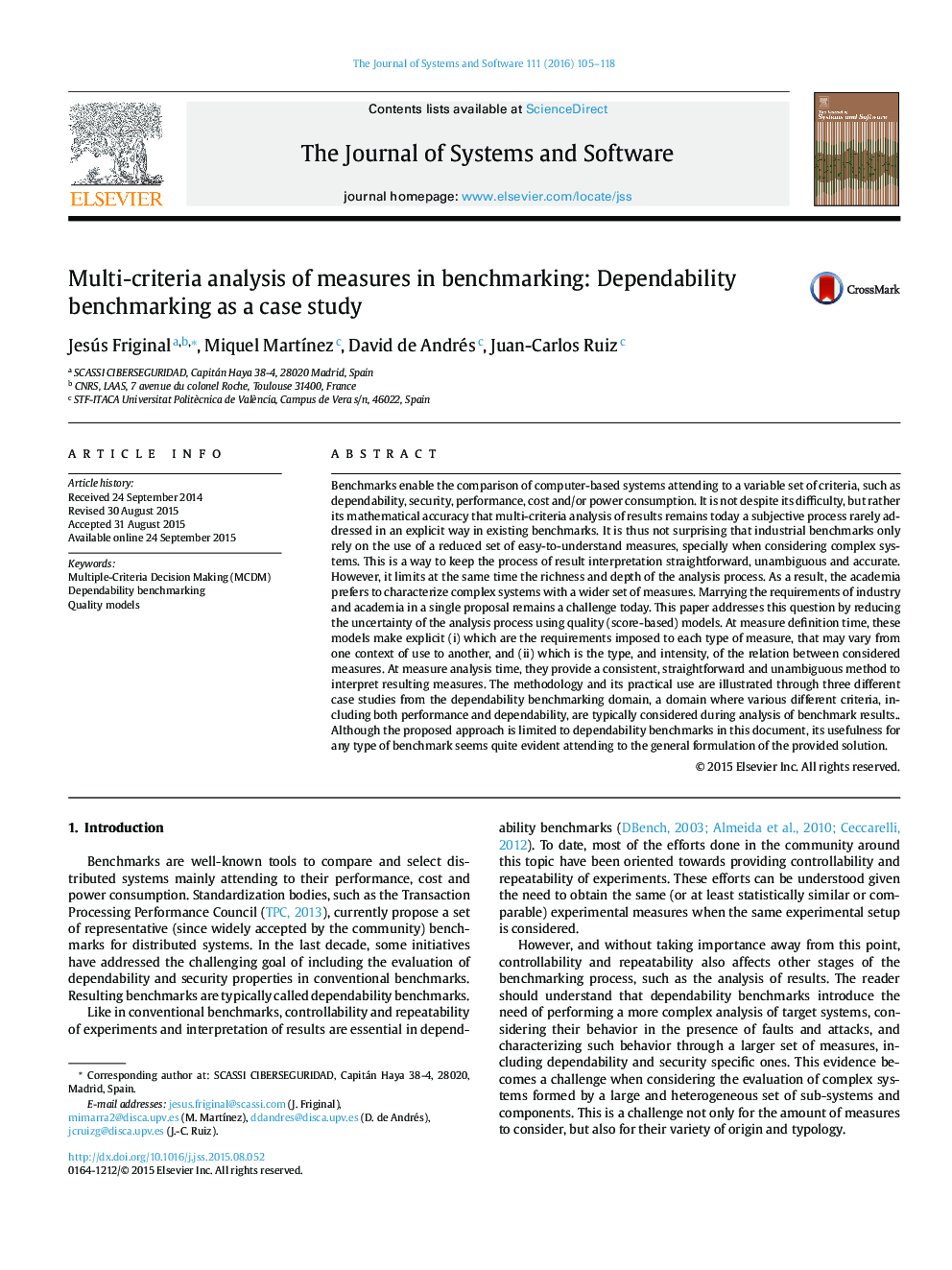| Article ID | Journal | Published Year | Pages | File Type |
|---|---|---|---|---|
| 6885534 | Journal of Systems and Software | 2016 | 14 Pages |
Abstract
Benchmarks enable the comparison of computer-based systems attending to a variable set of criteria, such as dependability, security, performance, cost and/or power consumption. It is not despite its difficulty, but rather its mathematical accuracy that multi-criteria analysis of results remains today a subjective process rarely addressed in an explicit way in existing benchmarks. It is thus not surprising that industrial benchmarks only rely on the use of a reduced set of easy-to-understand measures, specially when considering complex systems. This is a way to keep the process of result interpretation straightforward, unambiguous and accurate. However, it limits at the same time the richness and depth of the analysis process. As a result, the academia prefers to characterize complex systems with a wider set of measures. Marrying the requirements of industry and academia in a single proposal remains a challenge today. This paper addresses this question by reducing the uncertainty of the analysis process using quality (score-based) models. At measure definition time, these models make explicit (i) which are the requirements imposed to each type of measure, that may vary from one context of use to another, and (ii) which is the type, and intensity, of the relation between considered measures. At measure analysis time, they provide a consistent, straightforward and unambiguous method to interpret resulting measures. The methodology and its practical use are illustrated through three different case studies from the dependability benchmarking domain, a domain where various different criteria, including both performance and dependability, are typically considered during analysis of benchmark results.. Although the proposed approach is limited to dependability benchmarks in this document, its usefulness for any type of benchmark seems quite evident attending to the general formulation of the provided solution.
Keywords
Related Topics
Physical Sciences and Engineering
Computer Science
Computer Networks and Communications
Authors
Jesús Friginal, Miquel MartÃnez, David de Andrés, Juan-Carlos Ruiz,
